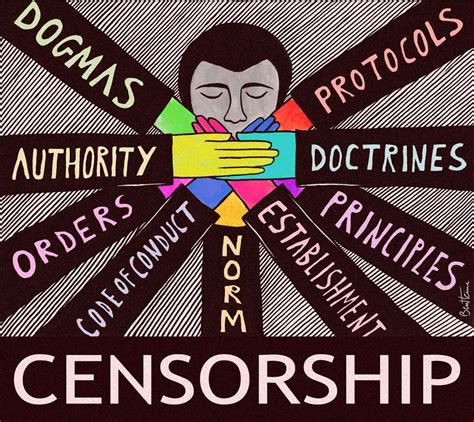The recent news of Mozilla’s silent ban on two anti-censorship add-ons in Russia has stirred the tech community, highlighting a deep divide between security, user empowerment, and political realities. Mozilla has removed these extensions from its Russian add-ons website, sparking substantial backlash while leaving users and developers in a linguistic and ethical maze. The predicament of ‘Runet Censorship Bypass’ and other essential extensions draws attention to intricate dilemmas faced by tech companies functioning under different regimes’ laws and norms.
One of the most poignant voices in this digital outcry came from Ilya Petrov, the creator of ‘Runet Censorship Bypass.’ Petrov emphasized that these tools serve as a lifeline for Russian users navigating state censorship and private sanctions delineations. He noted the abruptness of Mozilla’s decision without prior notifications to the developers, suddenly incapacitating a significant tool for open internet access. Such moves not only affect the developers but also the user base that relies on these tools for unrestricted access to information.
The reaction from the community has been overwhelmingly disapproving but varied. For instance, one user, rasengan, expressed hope for a quick resolution — a sentiment reflecting the user’s reliance on these add-ons. Conversely, secondary_op voiced significant distrust towards such extensions, labeling them as potentially shady and dangerous, insinuating that they might exploit users’ browsing habits for dubious gains. Herein lies a cautionary tale regarding user trust in the unverified guardianship of internet freedom.
The question of trust surfaced again when tasuki pointedly asked who gets to dictate permissible online content. The debate pivoted to the broader implications of a so-called free internet possibly monitored either by centralized corporations or faceless developers. If anti-censorship tools are denounced as untrustworthy, and state-influenced platforms similarly suspect, where does the average user place their faith? This dialogue is further heightened in politically sensitive atmospheres like Russia’s, where state oversight is stringent, and ‘freedom’ is often under duress.
A particularly critical voice, clipsy, lambasted Mozilla’s foundational model, arguing that no browser extension should necessitate Mozilla’s approval. The critique underscores a frustration with the legacy power dynamics between big-tech gatekeepers and end-users. This dissent echoes wider discontent with Mozilla’s decisions to enforce strict extension signing measures, thereby potentially stifling innovation under the guise of safeguarding. The resultant push for unofficial or alternate builds of Firefox hints at an undercurrent of users itching for more control over their software.
For alternatives, the community engagement revealed a litany of suggestions from Ladybird to Fennec, yet none seemed decisively superior. This lackluster portfolio sparks another critical point about the monopolistic tendencies in browser technologies and the chilling effect of regulatory compliance on market diversity. When mainstream browsers engage in censorship, albeit under duress or ethical crosshairs, they deepen a void, nudging user communities towards less moderated, possibly less secure alternatives, or fostering resignation among users.
“Couldn’t Mozilla have resisted?” some commenters pondered. This argument treads into speculative terrain, questioning Mozilla’s capacity and tenacity to defy autocratic impositions. Doing so invites perilous ramifications, ranging from bans to potential harm to assets or individuals situated within such territories. Realpolitik seems engrained in these decisions, thus presenting a paradox — protect the broader user base by complicating access to a few, or jeopardize the entire platform’s availability? The consequences, while unpalatable, appear rooted in survival instincts amidst hostile digital environments.
Lastly, the discussion about Mozilla’s historical decisions, whether it involves bundling DRM or the pocket fiasco, suggests a legacy fraught with ideological conflicts. As some argue that ideological purity in software development is increasingly incongruent with market realities, others yearn for an uncompromising stance. This duality where business pragmatism meets ethical expectations delineates Mozilla’s complex role in the contemporary tech ecosystem. Many see it at a precarious crossroads where its actions, however well-intended, often skew disappointing for the staunch privacy advocate.
In conclusion, Mozilla’s quiet removal of anti-censorship extensions from its Russian portal underlines many broader debates about digital freedom, security, and the political entanglements of tech giants. The controversy underscores the profound impact such decisions have on both the user community and the broader internet freedom narrative. The ensuing discourse, rich in divergent views, reminds us that the pathway through such issues remains fraught, reflective of a broader existential conundrum facing tech companies today: to comply, resist, or strategically acquiesce in the name of wider access.


Leave a Reply